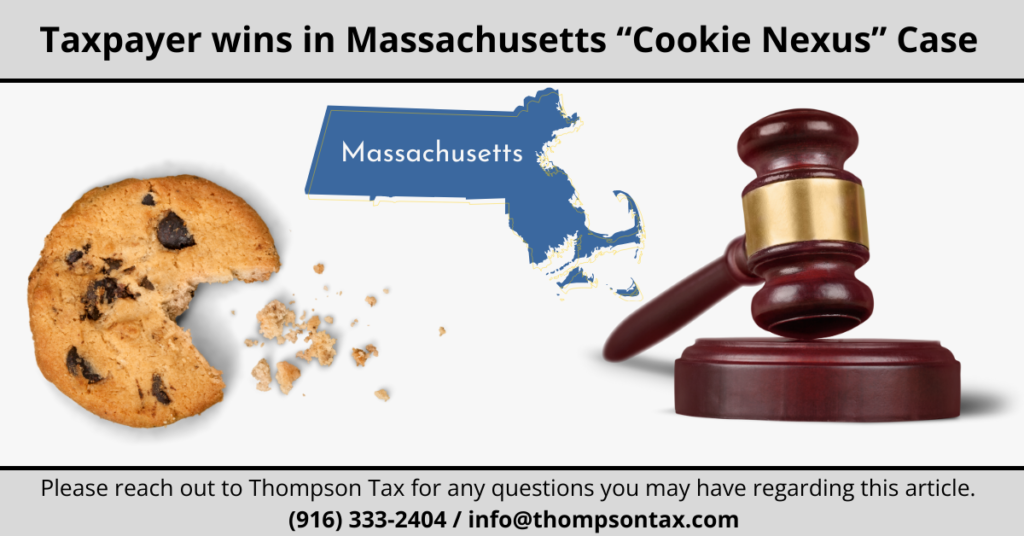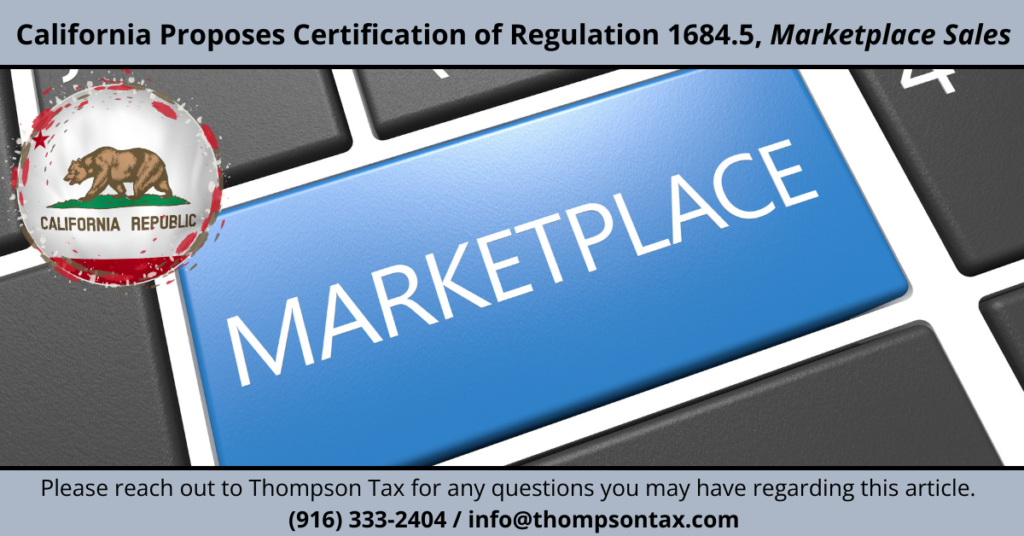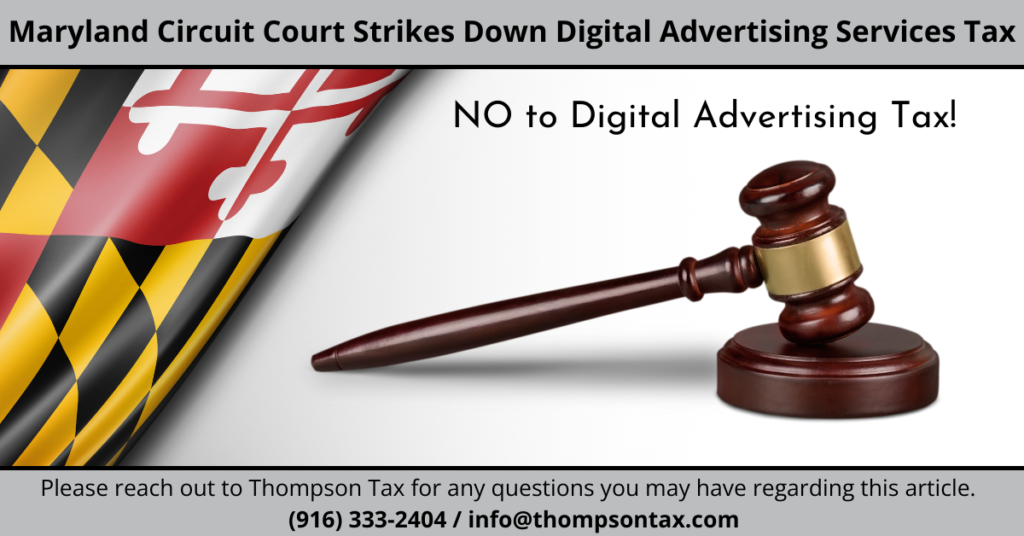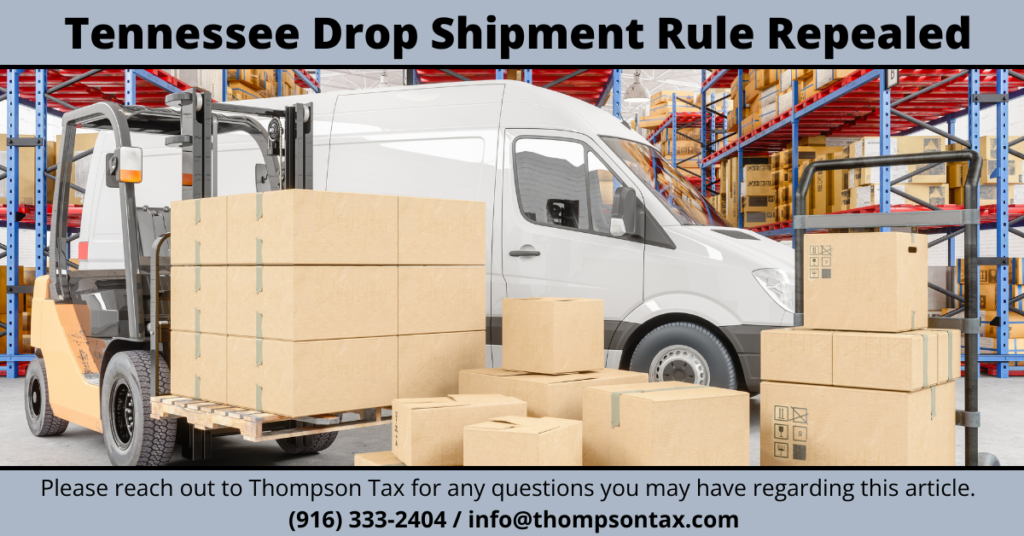Sales and Use Tax 101 – You Don’t Know What You Don’t Know

Sales and use tax compliance can be daunting. Regulations vary by state and jurisdiction making them difficult to navigate, and to make matters even more complex, the rules are ever-changing.
For many people, the concept of sales tax is just a charge you see on your receipt. Expanding your knowledge base to understand the compliance side of sales tax is far from your idea of fun, however, it’s an essential aspect of conducting business.
The following is a basic outline of compliance, Sales and Use Tax 101, if you will, because, let’s face it, ‘You don’t know what you don’t know.’
What is Sales Tax?
Sales tax is a tax imposed on the sale of goods and services, which is generally calculated as a percentage of the sale price. It is generally collected by the seller at the time of purchase and remitted to the state or local government.
Sales tax is a jurisdictional tax, which means that each state or jurisdiction has its own set of sales tax rates and rules. The amount of sales tax collected is based on the sales tax rate in the jurisdiction where the sale was made, or where the customer is located.
There are four types of Sales Tax: Sellers Privilege, Consumer Levy, Gross Receipts, and Transaction Tax, and each type is imposed differently, whether on the Seller or Purchaser or on the transaction itself.
What is Use Tax?
Use tax is a tax imposed on the use or consumption of goods and services in a state or local jurisdiction where sales tax was not paid. This tax is typically paid by the consumer directly to the state or local government. Keep in mind, businesses are consumers, too, and may owe use tax on purchases intended for use by the business itself.
Registration and Remittance Requirements
You must register in each state where your company has either physical or economic nexus. Sales and use tax nexus refers to the minimal connection between a business and a state that requires the business to collect and remit sales tax on sales made within that state. Nexus is established when a business has a physical presence in a state, such as a store, office, or warehouse. Nexus can also be established through other means, such as having employees or independent contractors working in the state, making regular deliveries or installations, or engaging in other activities that create a substantial connection with the state. Understanding sales and use tax nexus is important for businesses to ensure compliance with state and local tax laws to avoid potential penalties.
What If My Business Did Not Register When We Had Nexus?
Don’t worry, there are solutions available to help you get back on track. However, it’s important not to wait too long. Once a state contacts you, you may miss out on some of the less costly opportunities available to help you get into compliance.
Once registered, you must prepare a tax calendar and file sales and use tax returns according to the filing frequency assigned to your business.
Taxability of Products and Services
The taxability of products and services varies based on the state and the type of product being sold or service being provided. Generally, tangible personal property is subject to sales tax in most states, but exemptions and exclusions exist. For example, some states exempt certain items, such as food and clothing, from sales tax. Understanding the taxability of products is important for businesses to accurately collect and remit sales tax to the appropriate state agencies. Failing to apply sales tax to products or services properly can result in penalties, interest, and other consequences; therefore, businesses must stay current on state tax laws and regulations to ensure compliance.
Exemption and Resale Certificates
The state issues exemption certificates which allow businesses to claim an exemption from sales tax for specific items or transactions. Depending on the state, an exemption certificate may also be used for purchases made by non-profit organizations or for particular types of equipment or machinery used in production.
A resale certificate allows a business to purchase goods that will be resold without paying sales tax.
Businesses must ensure they are eligible for the exemption they are claiming and should keep accurate records of exemption certificates, resale certificates, and purchases to avoid potential issues with tax authorities.
Audits
There’s a saying in the tax world, ‘It’s not if you’re going to get audited; it’s when!’ Remember, though, that not all audits end with assessments. Being prepared is an essential step in avoiding a negative outcome. Make sure to keep all documentation (e.g., copies of returns, workpapers, purchase and expense support, exemption certificates) organized and easily accessible and, most importantly, remain compliant.
And More!
Sales and use tax compliance can be complicated, but it is an important aspect of doing business. Companies should familiarize themselves with the rules and regulations in each state where they conduct business in order to avoid penalties and ensure compliance with the law.
Reach out to Thompson Tax today! Let us help you navigate your sales and use tax compliance journey so that you can focus on growing your business. We are Your Trusted Tax Advisor.
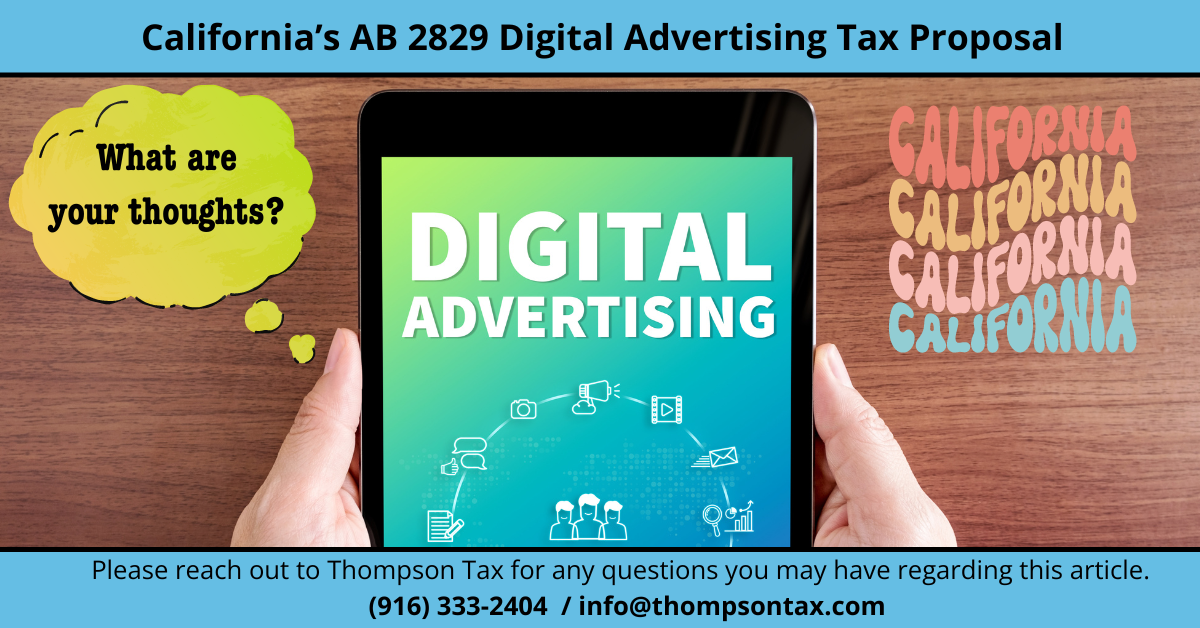
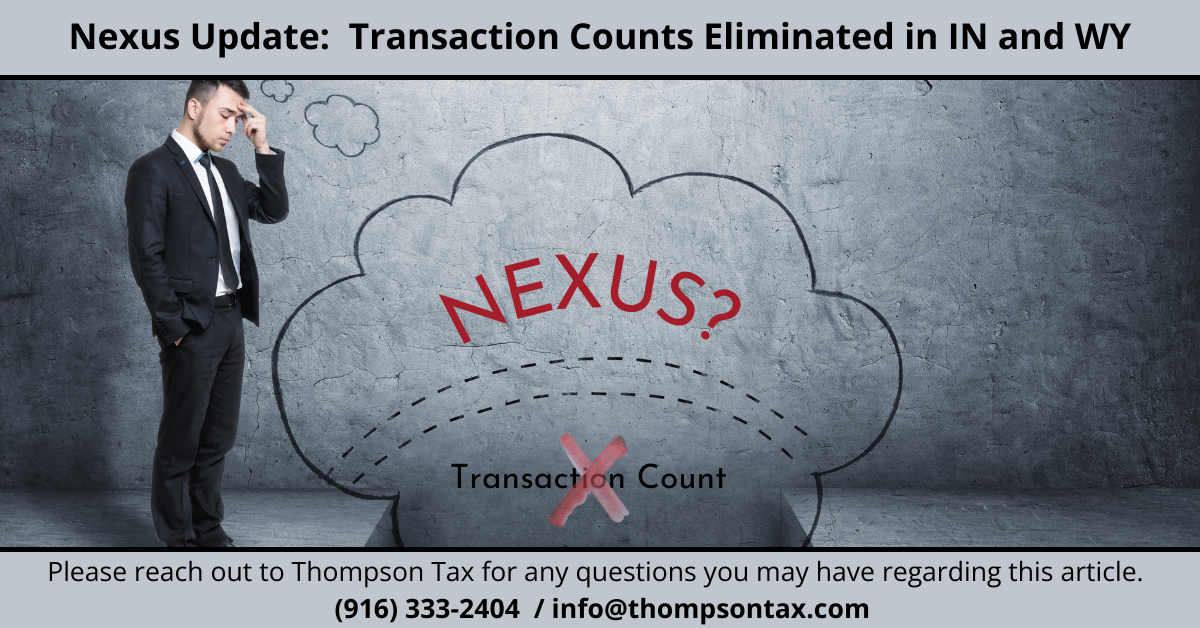
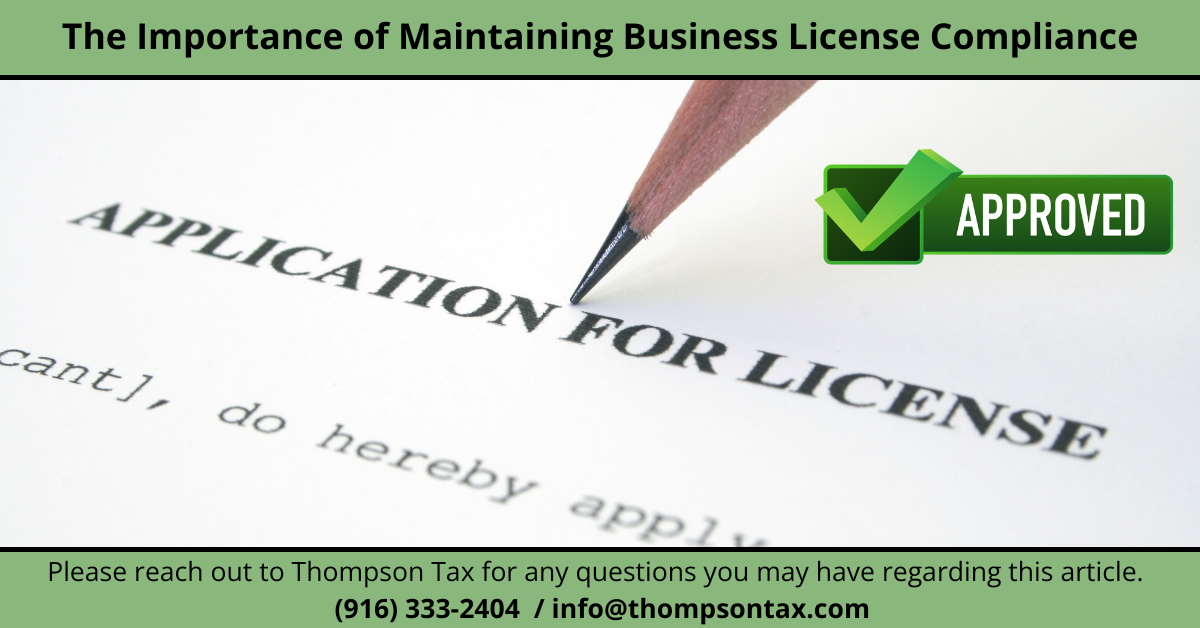
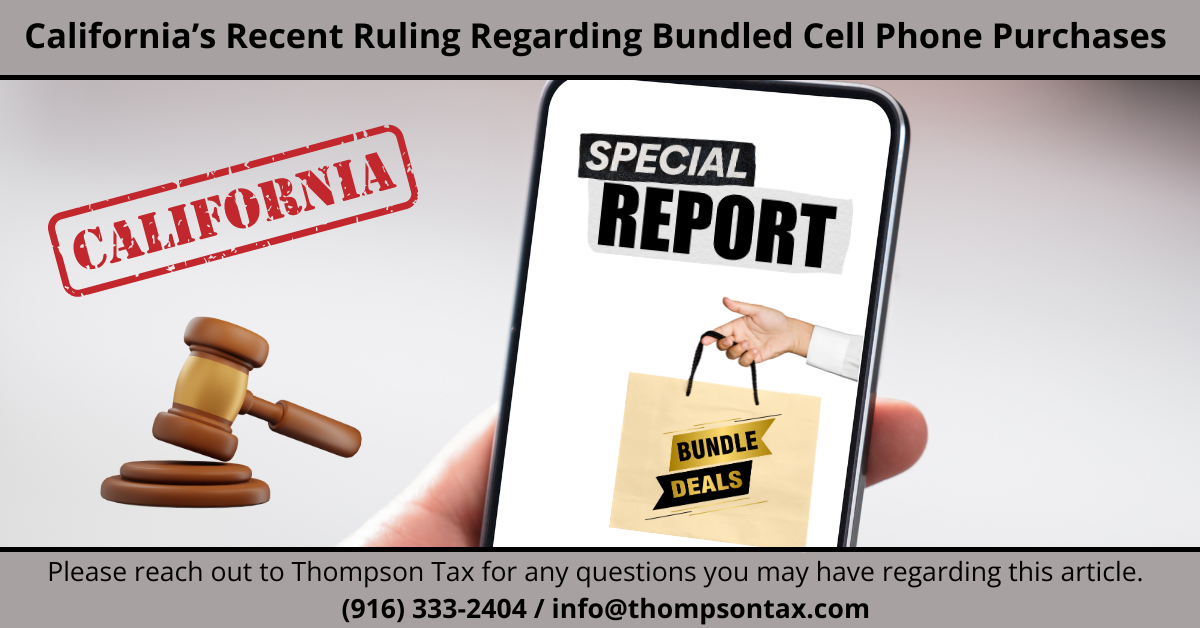
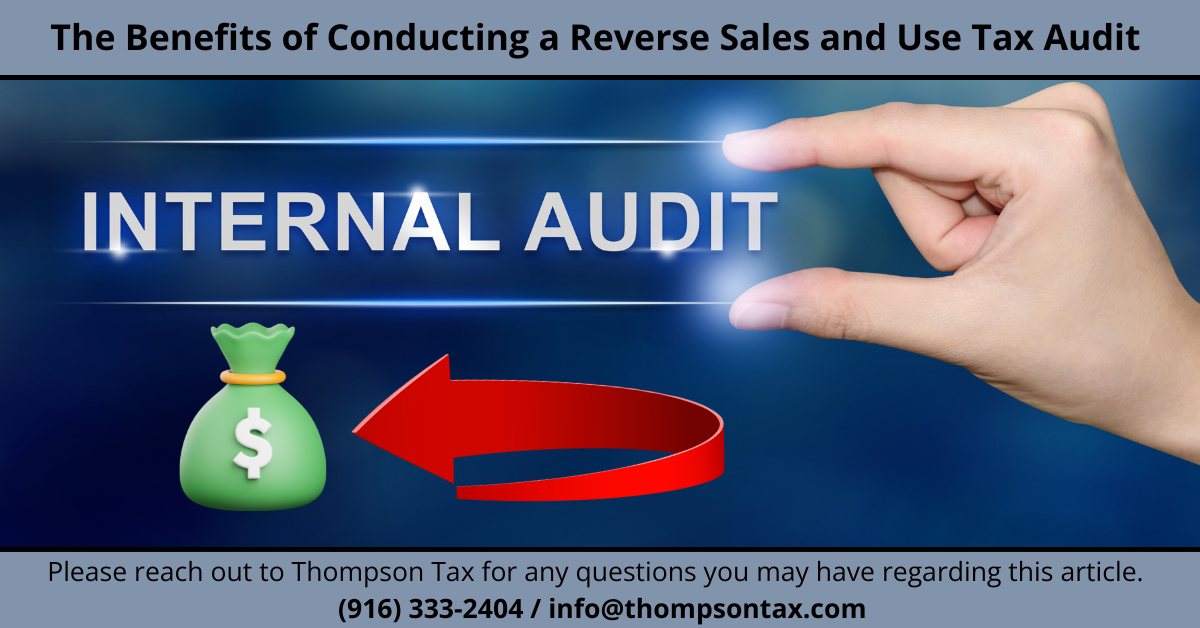
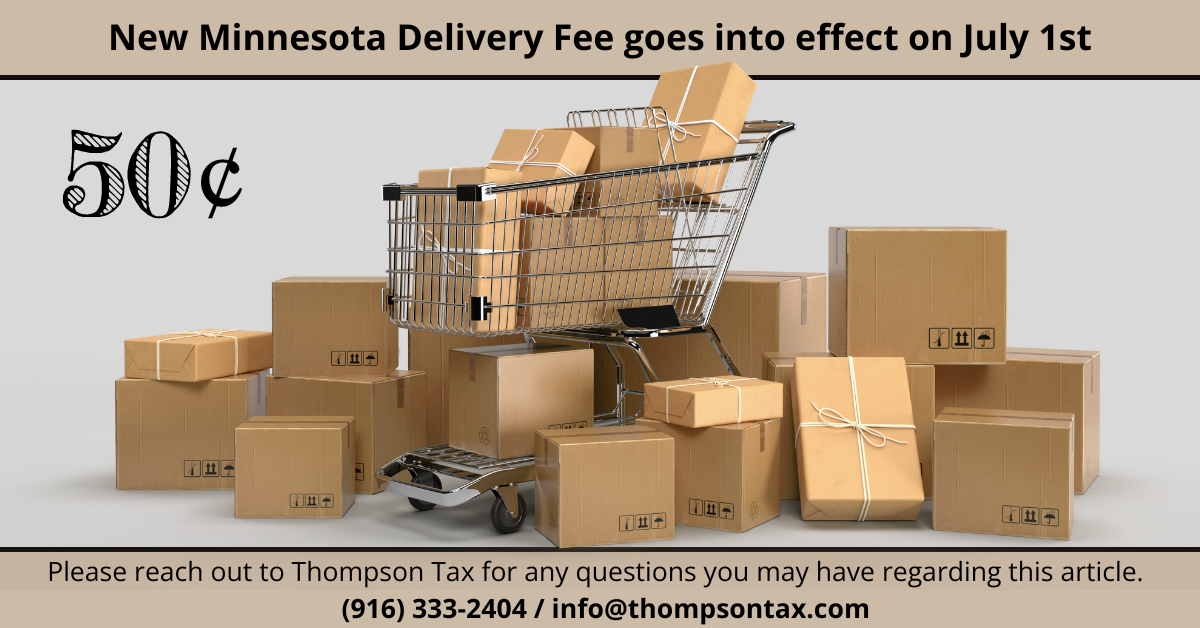


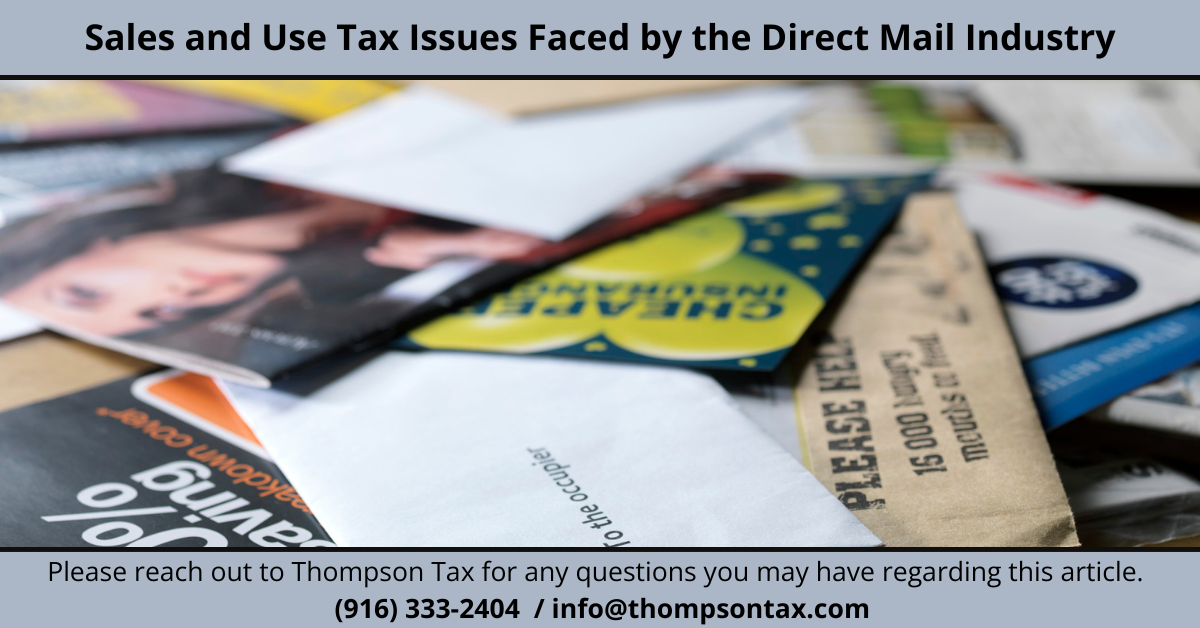
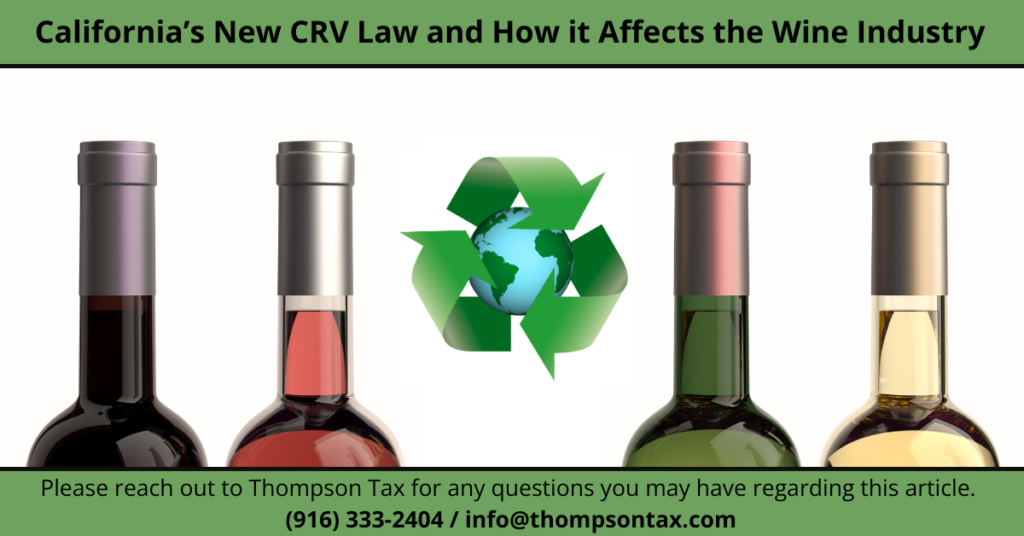
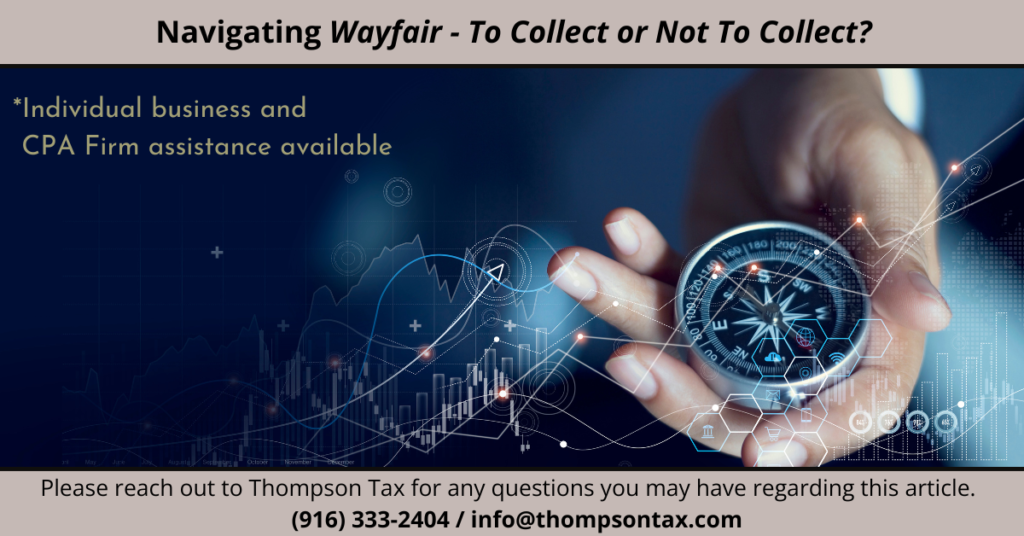
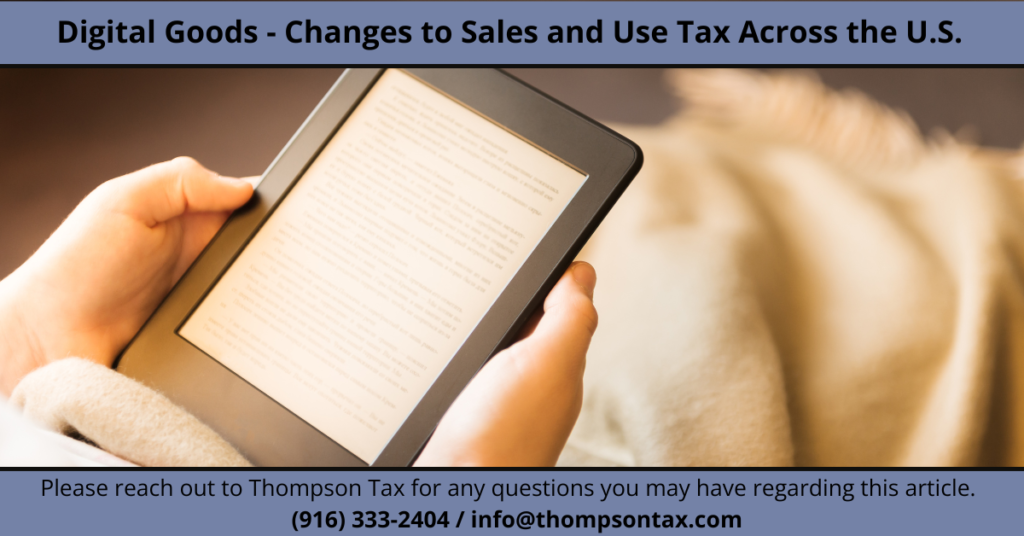
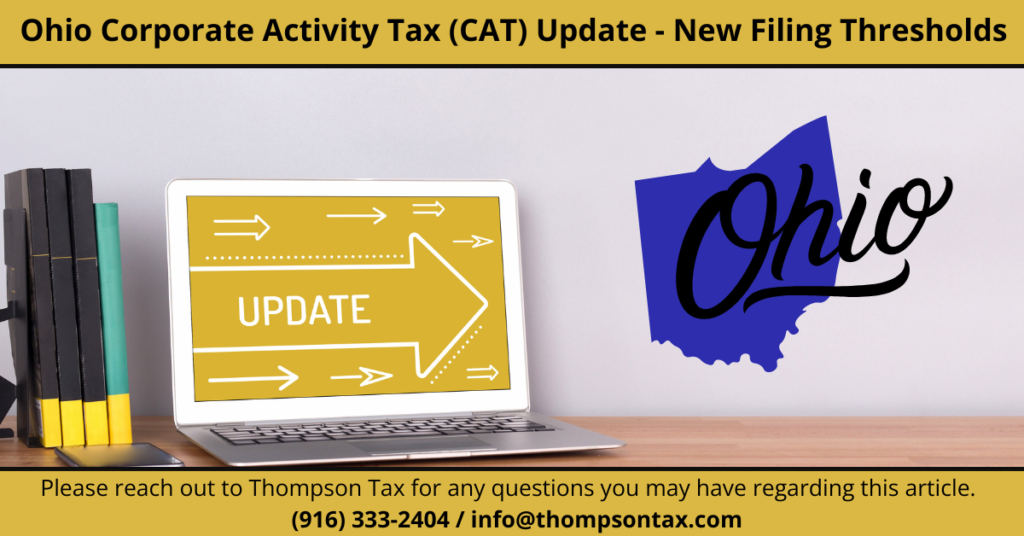
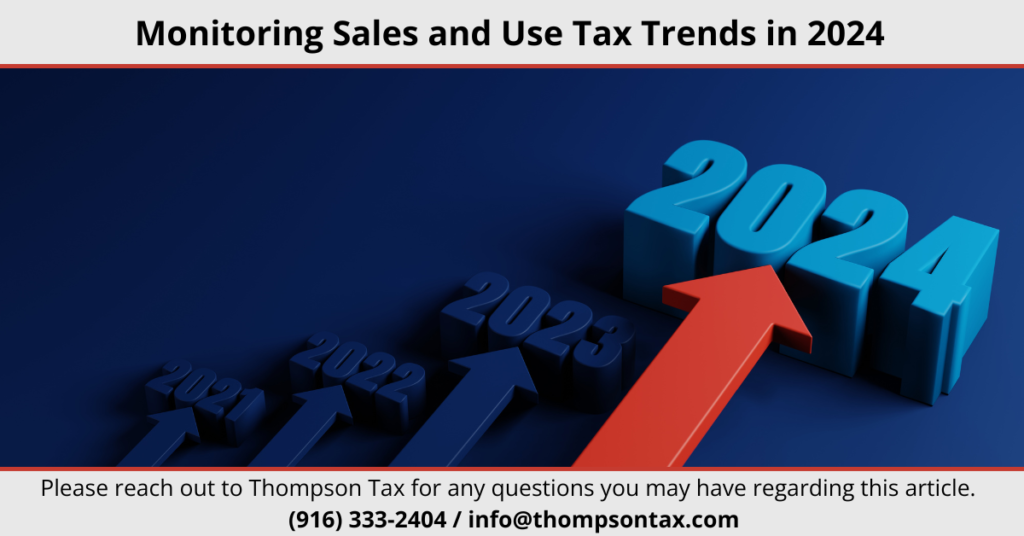
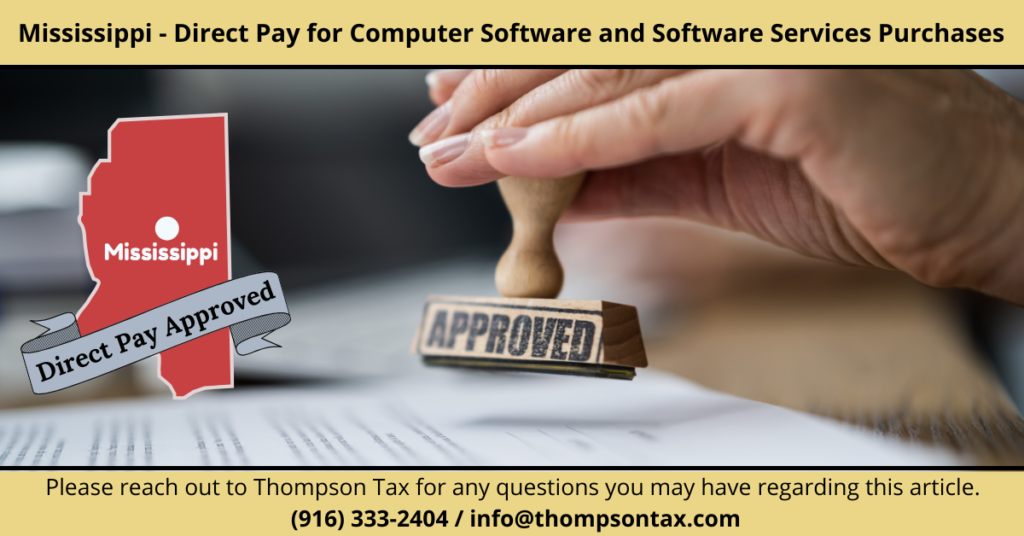
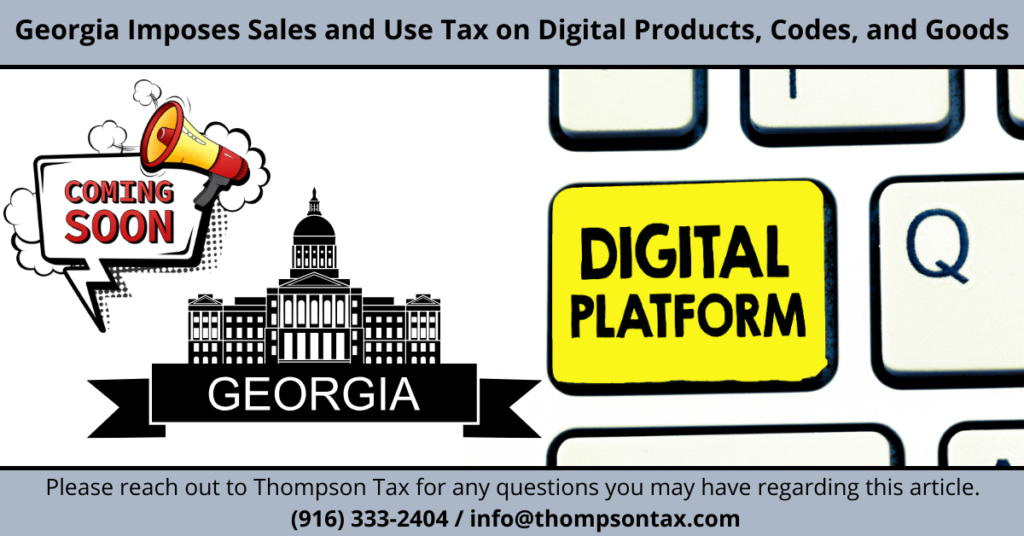 Effective January 1, 2024, Georgia will apply sales and use tax on the retail purchase of digital products, digital codes, and other digital goods that are transferred electronically to end-users in Georgia. The new digital sales and use tax will apply to the goods and products outlined below, provided that the end-user uses the digital products for personal consumption and not commercial use and is authorized to use the product, good, or code permanently after purchase with no obligation to continue paying for the product, good, or code after the initial sale.
Effective January 1, 2024, Georgia will apply sales and use tax on the retail purchase of digital products, digital codes, and other digital goods that are transferred electronically to end-users in Georgia. The new digital sales and use tax will apply to the goods and products outlined below, provided that the end-user uses the digital products for personal consumption and not commercial use and is authorized to use the product, good, or code permanently after purchase with no obligation to continue paying for the product, good, or code after the initial sale.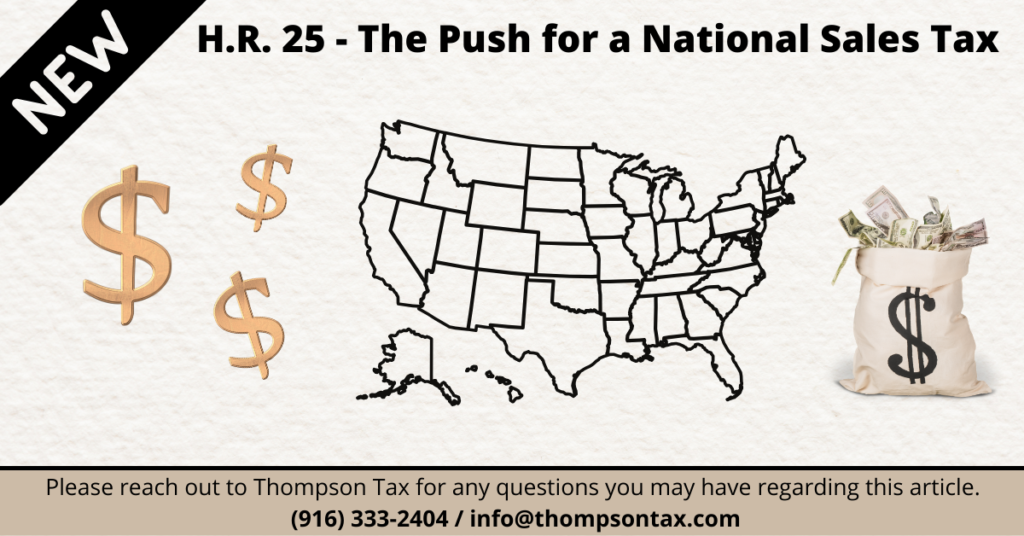 The Fair Tax Act of 2023 was recently introduced to Congress. If passed, the Act would allow a federal consumption tax of 23% on all goods and services that would replace most other federal taxes nationwide.
The Fair Tax Act of 2023 was recently introduced to Congress. If passed, the Act would allow a federal consumption tax of 23% on all goods and services that would replace most other federal taxes nationwide.